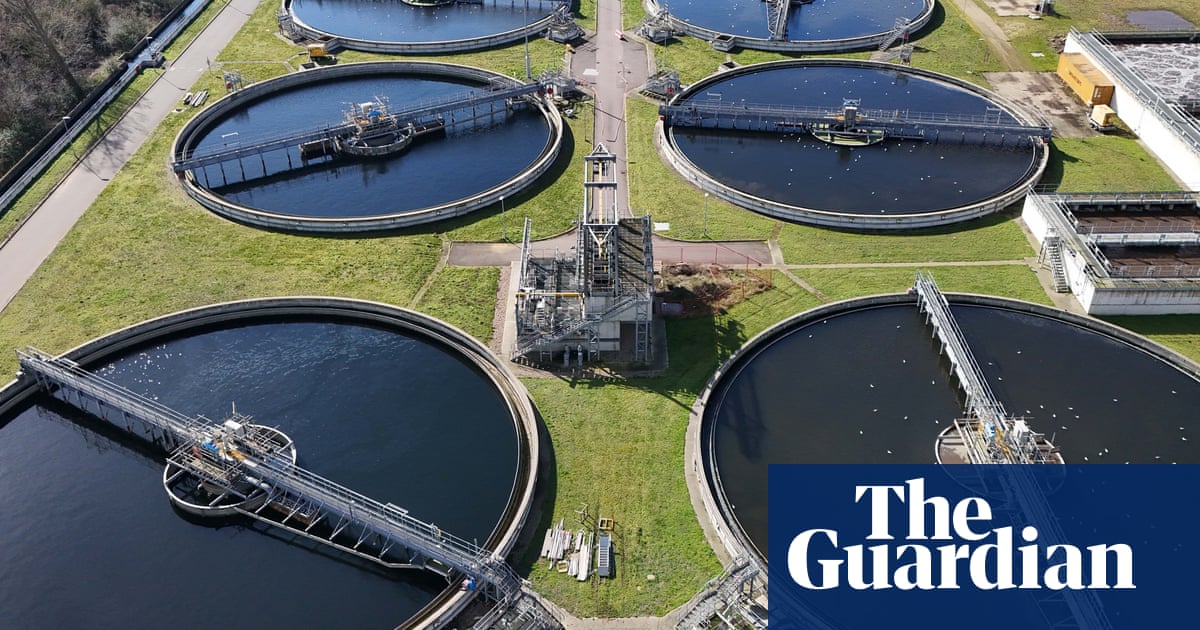Two of Britain’s biggest water companies,Thames Waterand Anglian Water, face more than 50 criminal investigations between them as part of a crackdown on sewage dumping, the government has said.
The utilities were subject to the bulk of a record 81 investigations into water companies between last July’s general election and March 2025, according to new data.
New powers to claw back the costs of theEnvironment Agencyinvestigations will be used, meaning the “polluter will pay”, sources told the Guardian.
This could prove very costly for Thames, the heavily indebted supplier that topped the charts of active investigations at 31 and will probably have to fund the majority of them.
Britain’s biggest water company, which recently came within five weeks of running out of funds, attempted topersuade the water regulator to let it off hundreds of millions of pounds of fines. Significant further costs could risk tipping it into a special administration, a form of nationalisation.
Thames Water is rushing to find a buyer willing to inject cash as it teeters on the brink of temporary nationalisation. The company, which has 16 million customers and 8,000 employees, is labouring under £20bn of debt.
The US private equity firm KKR, whichhopes to acquire a £4bn stake, is the last option for Thames Water as it scrambles to find a buyer by the end of June. Anglian Water has faced 22 investigations since last July.
Sources in the environment department said that they had directed the Environment Agency to take robust action and hoped to see water executives in court in coming months. After these investigations, water bosses could be jailed for two years and water companies fined hundreds of millions of pounds.
Steve Reed, the environment secretary, said: “Not only did the Conservatives oversee record levels of sewage dumping, they also shamelessly tried to cover it up.
“And Reform didn’t even mention sewage in their manifesto; Nigel Farage simply doesn’t care about our beautiful rivers, lakes and seas.
Sign up toDown to Earth
The planet's most important stories. Get all the week's environment news - the good, the bad and the essential
after newsletter promotion
“This Labour government is cleaning up the foul mess the Tories left behind with a record number of criminal investigations into lawbreaking water companies – which could see bosses behind bars.”
It is a criminal offence for a water company to break the rules of its environmental permit. This can include releasing excessive pollution into a river or failing to carry out water quality monitoring. The Environment Agency has hired 380 extra regulatory staff to carry out inspections and other enforcement activity.
James Wallace, the chief executive of River Action, said: “Criminal investigations are welcome, but regulators need urgent access to courts and if the upcoming spending review slashes Environment Agency funding, how will it sustain the level of enforcement needed to hold polluters to account – from water companies to factory farms? Tough talk needs backing with real resources.”
ThamesWater, Anglian Water and Water UK, the industry body, have been contacted for comment.
